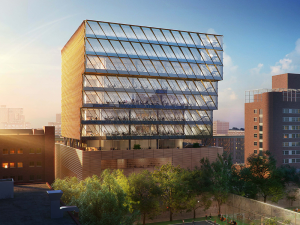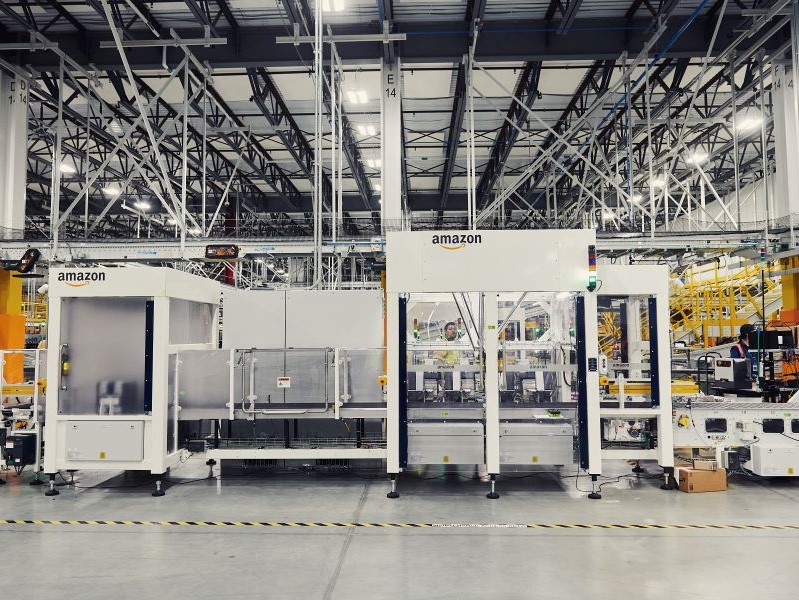NYC’s $454M Lab Project Tops Out
Skanska is building this facility, which is slated for completion in 2025.

New York City’s new Public Health Laboratory is slated for completion by the end of 2025. Image courtesy of Skanska
Skanska has topped out New York City’s new Public Health Laboratory, a 10-story, 240,000-square-foot development that will include testing and monitoring services for a wide range of clinical and health concerns and emergencies.
Designed by Skidmore, Owings & Merrill, the $454 million facility will be operated by the Department of Health and Mental Hygiene. The New York City Economic Development Corp. is managing the construction of the project, which is adjacent to Harlem Hospital at 40 W. 137th St.
The Harlem facility will replace the current public health lab at 455 First Ave., which is outdated and in poor condition. The development is on track for completion by the end of 2025 and ready for occupancy in 2026.
NYC’s future public health laboratory
In July 2021, Skanska signed the contract with NYCEDC for the construction of the new PHL that would have included offices, laboratories and clinical facilities. Work began in June 2022, following the demolition of three existing buildings on the Harlem Hospital campus.
SOM designed the facility to meet LEED version 4 Silver certification, with all critical systems located above the current 100-year floodplain. The new building will feature an urban-scale glass, cubic laboratory rising from a three-story masonry podium that will house support functions, administrative functions and a partial green roof.
Upon completion, the facility will comprise five stories of negative pressure laboratories, a 200-person auditorium and Harlem Express, a walk-in testing center for people to get screened for sexually transmitted infections with rapid, same-day results.
READ ALSO: Life Science Market to Bounce Back: JLL
DOHMH and NYCEDC secured $25 million from the Department of Citywide Administrative Services to make the new PHL one of the most energy efficient, sustainable and high-tech laboratories in the country. Some of the wellness and conservation measures include enhanced ventilation, solar photovoltaic panels and chilled beams.
The building will be part of the city’s 80×50 program, which is committed to achieving an 80 percent carbon emissions reduction by the year 2050. It will also have a cogeneration plant to provide significant energy and cost savings.
The first municipal bacteriological laboratory in the world
The New York City Public Health Laboratory was the first municipal bacteriological lab in the world. The facility performs critical testing to detect and respond to public health emergencies including COVID-19, H1N1, monkeypox, Ebola, hepatitis A, Legionnaires’ disease, Zika virus and measles.
The public health lab has expanded over the years. It now has more than 200 staff members who provide a variety of clinical and environmental laboratory testing services including community testing for tuberculosis and sexual health associated diseases; antibiotic resistance testing; food borne disease investigations; outbreak response to public health emergencies; whole genome sequencing; beach water and wastewater pathogen monitoring; and biothreat agent testing.







You must be logged in to post a comment.